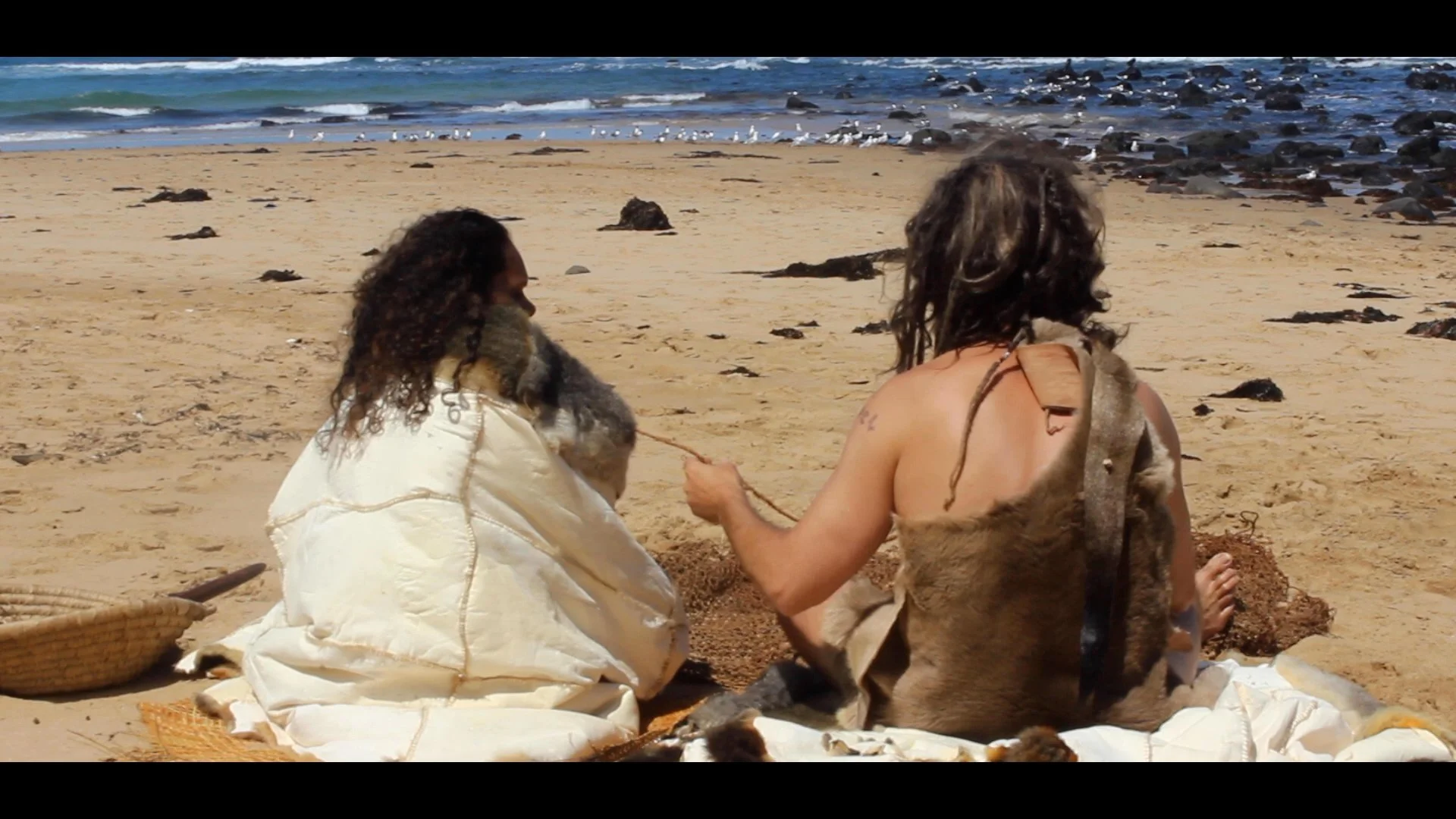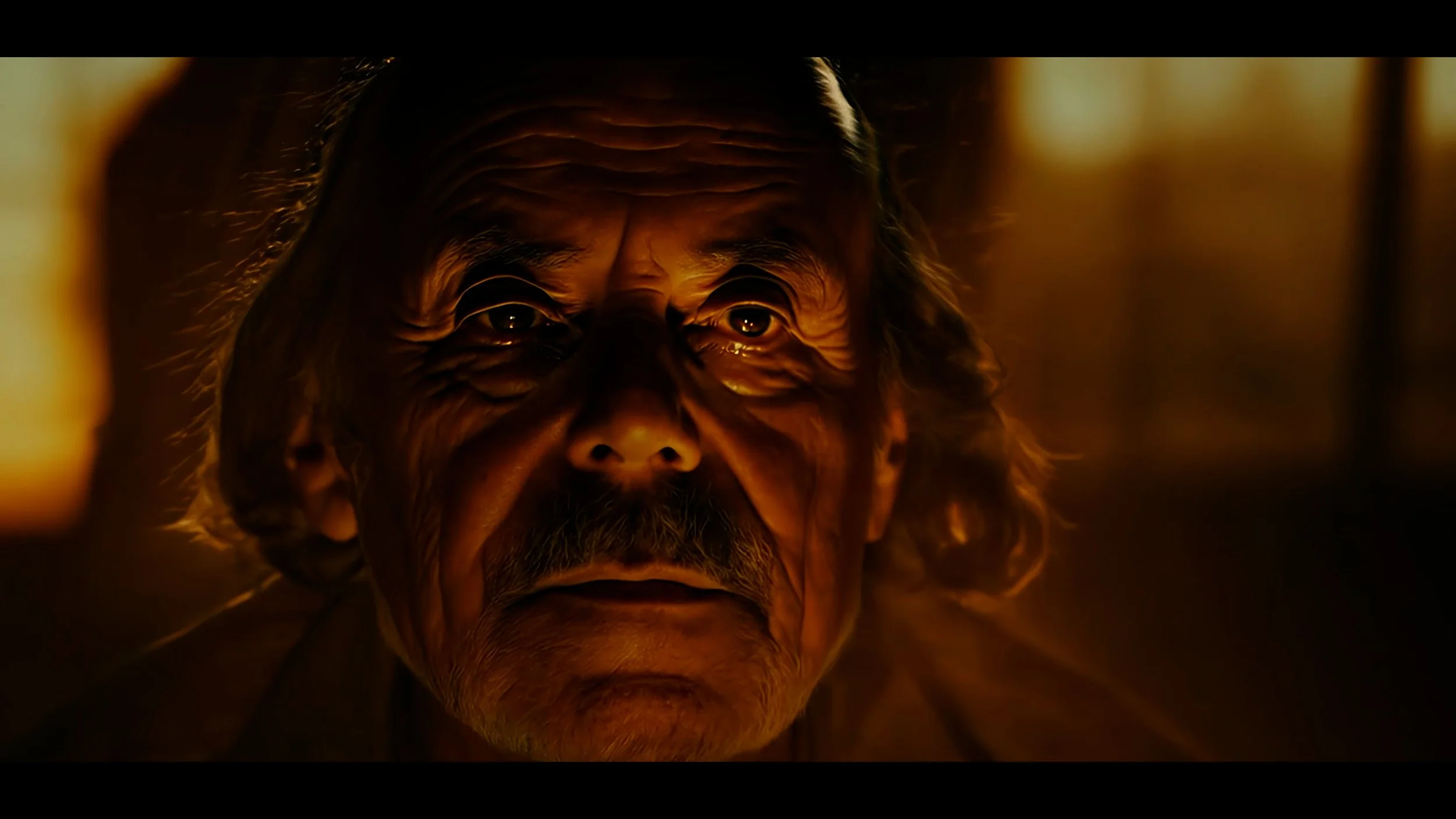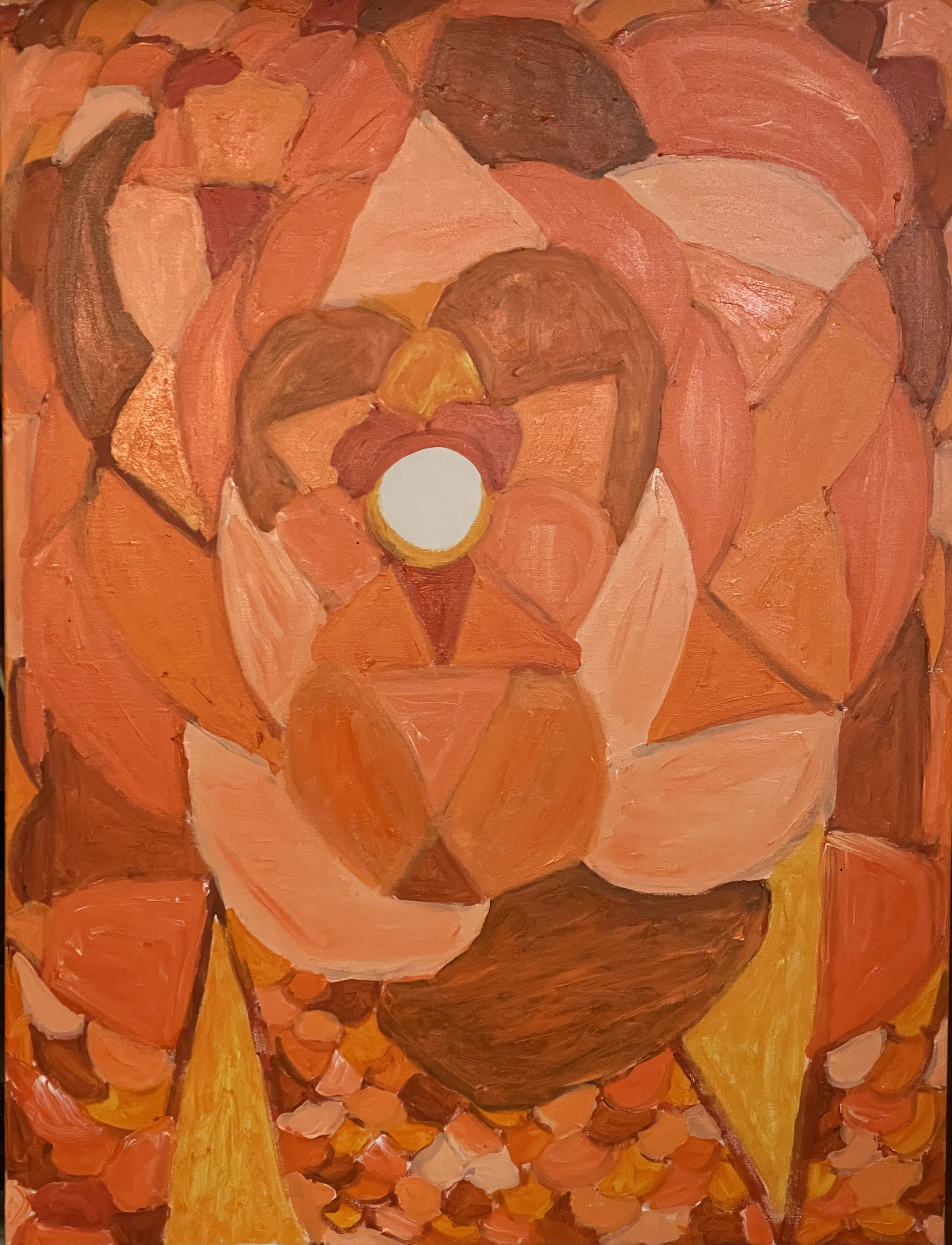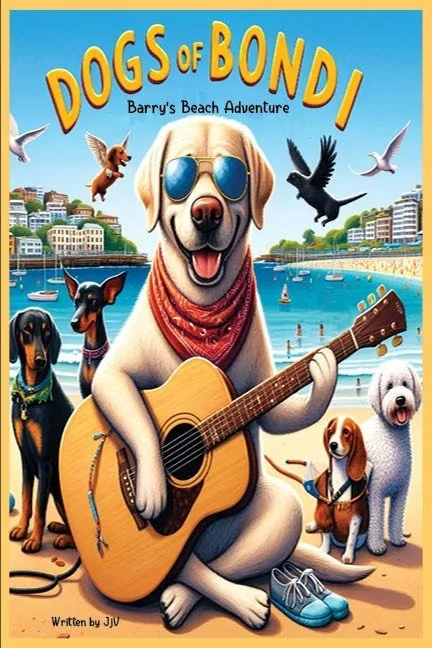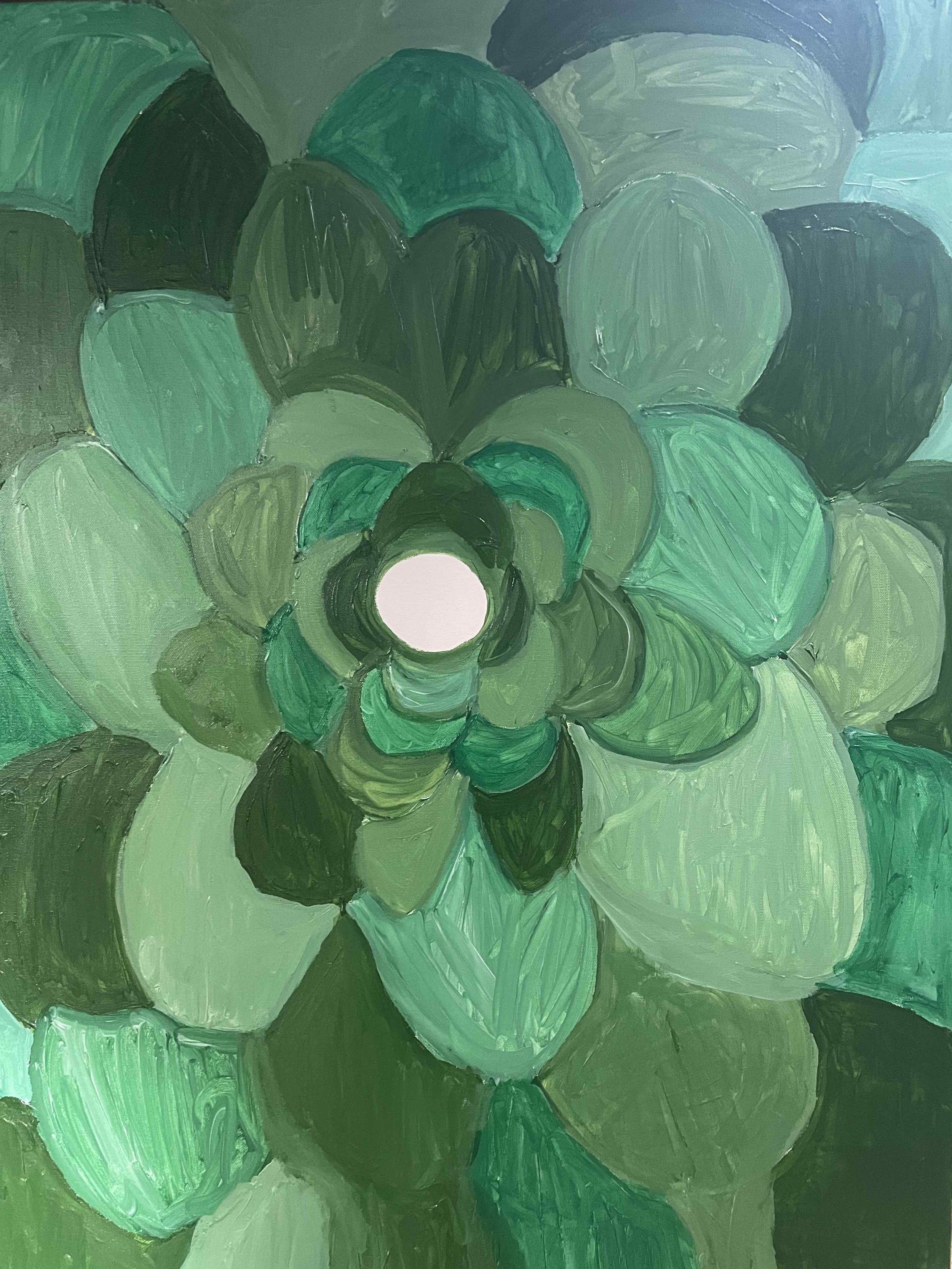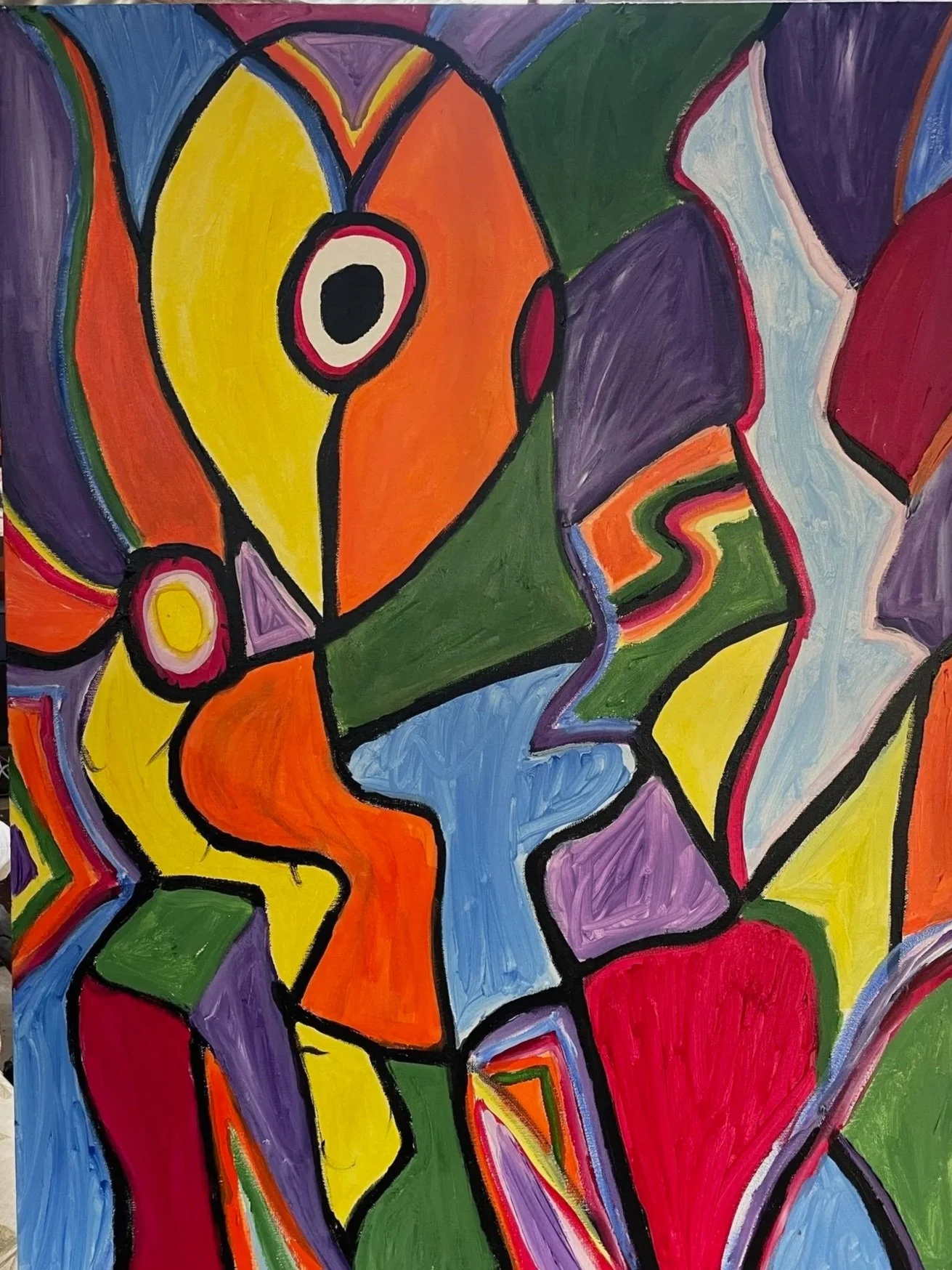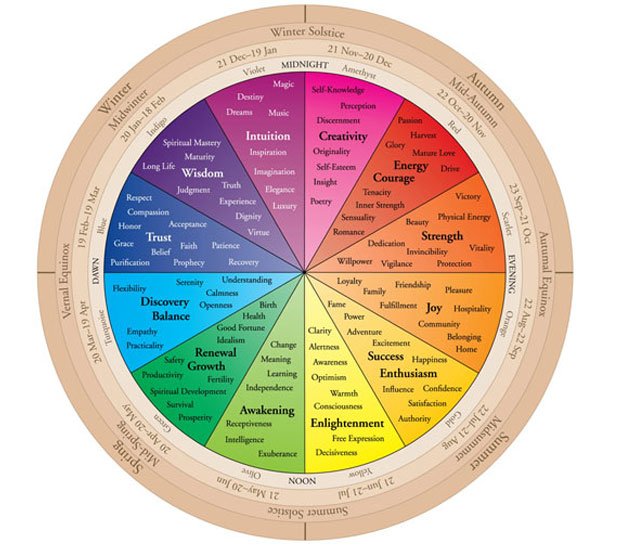James Vegter is a writer, actor, producer, director, musician and artist with over 20 years of experience across film, television, advertising, music, and publishing. His work spans screenwriting, directing, and producing drama, documentary, music, educational, and Indigenous-led projects, alongside a global acting career with credits across Amazon Prime, Paramount, Netflix, Foxtel, Stan, SBS, ABC, Channel 7, Channel 10, BBC, and NBC, as well as more than 30 international commercial campaigns.
An early career highlight was a lead role in Lovers (2008), filmed in Shanghai, China, a project connected to the creative team behind Crouching Tiger, Hidden Dragon, which helped shape his international outlook and cross-cultural approach to filmmaking and storytelling.
James is the Founder of ROOH Productions and Head of Film at Magic Lands Alliance, where he specialises in creating film, music, and books that blend artistic excellence with social awareness and cultural integrity. His work is driven by a commitment to cross-cultural collaboration and truth-telling through story.
In 2025, James is working internationally across Australia, India, Africa, China, Japan, the United States, the United Kingdom, and Europe. He actively supports Indigenous rights, historical truth-telling, children’s education, and mental health awareness through storytelling and film that foster dialogue and create lasting global impact.
MVMNT
October 1, 2025: Moorups Call - Behind the Scenes Shots
Moorups Call, a short film produced by RooH Productions, Registars, and the Magic Lands Alliance, is now complete and preparing for the festival circuit. Inspired by Auntie Mary Clark’s story (Untold Stories by Jan Pritchard) and created in collaboration with the Wadawurrung community, the film follows the spirit (Morrup) of escaped convict William Buckley as he returns to Wadawurrung Country in 1856. Through this journey, he confronts the impacts of colonisation and the truths of his bloodline with the Wadawurrung People, with whom he lived for 32 years after escaping the British Crown in 1803.
September 29, 2025: Barry’s Music Adventures – Children’s Book Series has been an incredible journey.
Five books later, after years of creativity and hard work, the final drafts are now with the printers for proofing ahead of launch.
What began with Dogs of Bondi: Barry’s Beach Adventure has grown into a five-book series, Barry’s Music Adventures — heartwarming tales for ages 0–10 that follow Barry, a guitar-playing Labrador, as he travels across Australia discovering the power of music, friendship, and kindness. Each story is set on Country, celebrating connection to place, community, and culture.
Dogs of Bondi – Swept overboard and rescued at Bondi Beach, Barry finds friendship, music, and a new home. (Warrane/Sydney, Eora Nation)
The Laughing Kookaburras of Kyabram – Lost in the bush, Barry joins kookaburras in the magical Chorus of Dawn. (Yorta Yorta Country, Kyabram)
Cats of Melbourne – In Naarm’s laneways, Barry learns jazz and friendship from city cats. (Wurundjeri Country, Melbourne)
Pelicans of Phillip Island – Guided by pelicans, Barry discovers music is about kindness and sharing. (Bunurong/Boonwurrung Country, Millowl/Phillip Island)
Crocodiles of Cairns – In Far North Queensland’s rivers, Barry learns courage and reconnects with his long-lost owner. (Gimuy, Yirrganydji & Gimuy Walubara Yidinji Country, Cairns)
September, 2025: Two Paintings Sold
I’m excited to share that two of my chakra series paintings have found new homes.
The first, Voiced, is a blue-toned work inspired by the Throat Chakra (Vishuddha – 5th). It explores communication, truth, self-expression, and authenticity through shades of blue — reflecting the throat and neck area, the fluidity of water, and its connection to the sky.
The second, Location, is a powerful orange piece from the same series, centred on the Sacral Chakra (Svadhisthana – 2nd). Symbolising creativity, pleasure, relationships, and emotional flow, it channels the energy just below the navel through vibrant shades of orange. This painting has always been one of my favourites for its strength and intensity.
September 16, 2025- Magic Lands Educational Articles
Written, Researched and Directed by James Vegter 16/09/2025
Truth, History, and Story: Avoidance, Perspective, and the Psychology of Narratives
The relationship between truth and history has long been a subject of contention. Histories are shaped not only by evidence but also by the stories societies choose to tell—and to avoid. In colonial contexts such as Victoria and Australia, the truth about Indigenous dispossession and violence was often silenced, replaced by narratives of discovery and progress. This article examines how truth is avoided in history, the power of stories to shape collective perspectives, the psychological mechanisms behind truth and denial, and case studies from around the world, as well as older philosophical theories of truth that continue to influence historical practice.
Avoidance of truth in history
Truth in history is never neutral. The selection of sources, framing of events, and silencing of certain voices create narratives that may obscure uncomfortable realities.
Colonial Victoria: Frontier massacres, removals, and cultural suppression were often excluded from nineteenth- and twentieth-century school histories, replaced with stories of pioneering and settlement (Broome 2005).
Global examples:
In the United States, histories of slavery and Indigenous genocide were long minimised.
In South Africa, apartheid histories silenced Black perspectives until post-apartheid truth commissions.
In Europe, colonial violence in Africa and Asia was overshadowed by celebratory accounts of empire.
The avoidance of truth often reflects the needs of dominant groups to protect national myths, maintain authority, and avoid confronting injustice.
Storytelling and the shaping of historical truth
Human beings understand the past through stories. Storytelling provides coherence and meaning, but it also shapes how truth is perceived:
National myths: Narratives of “progress” or “civilisation” turn colonisation into a heroic saga rather than an act of invasion.
Silenced voices: When Indigenous peoples’ oral histories are excluded, truth is replaced by partial perspectives.
Resistance stories: Stories also preserve counter-truths: Aboriginal oral histories of resistance and survival challenge colonial myths (Reynolds 1981).
Thus, history is not a simple record of facts but a battleground of competing stories.
The psychology of truth and denial
The reluctance to face difficult historical truths is rooted in human psychology. Individual and collective minds employ strategies to protect themselves from discomfort, guilt, and trauma.
Cognitive dissonance
Leon Festinger’s theory of cognitive dissonance explains that when facts clash with beliefs or self-image, individuals feel psychological discomfort.
Case study – Australia: Many Australians grow up with a self-image of a “fair go” nation. Evidence of massacres in Victoria, such as at Convincing Ground near Portland (1833–34), clashes with this belief. Some resolve the tension not by accepting the evidence but by denying its scale, reframing it as “conflict,” or avoiding discussion.
Collective memory and forgetting
Maurice Halbwachs described collective memory as the way groups construct shared versions of the past to support identity.
Case study – United States: For much of the 20th century, US schoolbooks described westward expansion as heroic while erasing Native American dispossession and massacres. This selective memory maintained national pride while silencing Indigenous suffering.
Moral disengagement
Albert Bandura’s concept of moral disengagement explains how people justify harm by changing language, displacing responsibility, or dehumanising victims.
Case study – South Africa: During apartheid, state narratives framed segregation as “separate development.” Euphemistic language allowed systemic violence to be justified. Only through the Truth and Reconciliation Commission (1995–2002) were these justifications confronted publicly.
Trauma and denial
Trauma research shows that denial can be both a defence mechanism for survivors and a means of moral avoidance for perpetrators.
Case study – Holocaust denial (Europe): Despite overwhelming evidence, denial movements arose after World War II. Survivors lived with trauma, while some perpetrators’ descendants denied the events to avoid inherited guilt. This demonstrates how denial protects identities at the cost of truth.
Case study – Aboriginal communities (Victoria): Survivors of child removal policies often avoided speaking about their trauma for decades. Meanwhile, settler society denied or minimised the Stolen Generations until the 1997 Bringing Them Home report forced public acknowledgment.
Neuroscience of memory
Modern neuroscience shows that memory is reconstructive, not fixed. Repetition strengthens particular narratives, whether true or not.
Case study – National myths: Repeated retelling of stories like “Captain Cook discovered Australia” created entrenched neural pathways across generations, overshadowing Aboriginal oral histories of 65,000 years of continuous culture.
Social identity and in-group bias
Social identity theory shows that groups defend their moral reputation.
Case study – Japan (World War II): School textbooks for decades minimised Japanese war crimes, such as the Nanjing Massacre, to preserve national pride. Similarly, in Australia, textbooks until the 1970s framed colonisation as peaceful to avoid damaging the settler identity.
Old theories of truth and their influence
Philosophical theories of truth shape how historians think about the past:
Correspondence theory: Truth is correspondence between statements and facts (Aristotle, Aquinas). This underpins historical empiricism: documents and evidence should “match” reality.
Coherence theory: Truth is coherence within a system of beliefs (Hegel, Bradley). Histories are considered true if they fit into a consistent narrative, even if they omit facts.
Pragmatic theory: Truth is what works in practice (William James, John Dewey). Historical stories may be judged “true” if they serve social purposes, such as building national unity.
Constructivist views: More recent theories argue that truth in history is socially constructed, shaped by power and perspective (Foucault 1977).
Colonial histories often relied on coherence and pragmatic notions of truth, privileging stories that fit national ideals or served political stability over correspondence with violent realities.
Truth-telling and historical justice
Modern truth-telling movements challenge the avoidance of truth in history:
Victoria: The Yoorrook Justice Commission (2021– ) is the first truth-telling process in Australia, documenting the experiences of Aboriginal Victorians under colonisation.
South Africa: The Truth and Reconciliation Commission revealed the atrocities of apartheid.
Canada: The Truth and Reconciliation Commission investigated abuses in residential schools.
Chile and Argentina: Truth commissions documented state terror and disappearances under military dictatorships.
These initiatives emphasise that history must include silenced voices to create a more just and accurate collective memory.
Conclusion
Truth in history is complex, contested, and often avoided. Stories—whether national myths or oral traditions—shape perspectives on truth, sometimes obscuring and sometimes revealing it. Psychological mechanisms such as cognitive dissonance, collective forgetting, trauma denial, and in-group bias explain why societies resist confronting uncomfortable histories. Case studies from Victoria, Australia, and worldwide demonstrate how denial operates in practice, from frontier massacres to apartheid and the Holocaust. Philosophical theories of truth reveal how assumptions about correspondence, coherence, and pragmatism have long shaped the history of philosophy. Today, truth-telling movements remind us that confronting silenced stories is crucial for achieving justice, reconciliation, and a more accurate understanding of history.
References
Bandura, A. (1999) ‘Moral disengagement in the perpetration of inhumanities’, Personality and Social Psychology Review, 3(3), pp. 193–209.
Broome, R. (2005) Aboriginal Victorians: A History Since 1800. Sydney: Allen & Unwin.
Festinger, L. (1957) A Theory of Cognitive Dissonance. Stanford: Stanford University Press.
Foucault, M. (1977) Discipline and Punish: The Birth of the Prison. New York: Pantheon.
Halbwachs, M. (1992) On Collective Memory. Chicago: University of Chicago Press.
Herman, J. (1992) Trauma and Recovery. New York: Basic Books.
Reynolds, H. (1981) The Other Side of the Frontier: Aboriginal Resistance to the European Invasion of Australia. Melbourne: Penguin.
Schacter, D. L. (2001) The Seven Sins of Memory: How the Mind Forgets and Remembers. Boston: Houghton Mifflin.
Magic Lands Alliance
Sharing the truth of Indigenous and colonial history through film, education, land and community.
Copyright of MLA – 2025
Magic Lands Alliance acknowledge the Traditional Owners, Custodians, and First Nations communities across Australia and internationally. We honour their enduring connection to the sky, land, waters, language, and culture. We pay our respects to Elders past, present, and emerging, and to all First Peoples communities and language groups. This article draws only on publicly available information; many cultural practices remain the intellectual property of communities.
July 31, 2025: Frank - Episode 6
Here is a scene I was recently in from The Last Anniversary, which aired on Foxtel (Australia), Binge, BBC (UK), and AMC+ (US). It was directed by John Polson.
July, 2025: Torres Strait Island Adventure
I went to explore Waibene (Thursday Island) and the Torress Strait Islands and it was a great adventure indeed.

June 1, 2025: Magic Lands Alliance's new website www.magiclandsalliance.org
Sharing the truth of Indigenous and colonial history through film, education and community.
MLA is a not-for-profit organisation uniting storytellers, First Nations voices, and educators to revive Indigenous and colonial histories through period dramas and educational resources. Committed to truth-telling and cultural preservation, we produce films and educational material that foster social awareness and restore connection to land, culture, and community.
March 27, 2025: Frank - Episode 6
The Last Anniversary TV series is out today worldwide on @binge and @foxtel and Sunday in America on AMC+! Watch out for Frank’s little cameo toward the end, alongside the generous and open Teresa Palmer @teresapalmer It was a lot of fun and an honour to work with — and meet — some incredibly talented artists in action. Special thanks for your guidance, Suzi Prior @humantheramin The series is based on Liane Moriarty’s best-selling novel, adapted by Samantha Strauss, and executive produced by Bruna Papandrea and #NicoleKidman.
Director #JohnPolson was a legend — he made me feel comfortable and relaxed on set. Support Australian film content! 💚❤️
February 2025: New Headshots with the beard by Alex Vaughan
December 5, 2024: Dogs of Bondi: Barry’s Beach Adventure
Book 1/5: Barry’s Music Adventures:
After making some final adjustments in collaboration with my son, my first children’s book is published and LIVE on Amazon! “Dogs of Bondi: Barry’s Beach Adventure” 🐾 is a tale of adventure, new friendships, and music, all set against the backdrop of Bondi Beach, Sydney, Australia. 🌊🎶 Available now in Paperback and eBook on Kindle Direct. 📖🖥️ Perfect gift for children aged 0–7 who can read, and for parents to read to their children too. 🎧 Audiobook coming in 2025! Stay tuned for my next release: “Kookaburras of Kyabram: Barry Goes on a Bush Tour.” - coming soon!
👉 Click the link in bio to grab your copy if you wish! https://www.amazon.com.au/dp/B0DCB79L84
November 5, 2024: Experimenting with Chakra healing Paintings
November, 2023: Garra's Chance (Written and Directed)
Garra’s Chance is a short film created in collaboration with Magic Lands Alliance, RooH Productions, Love Hat Films, Registars, and First Nations communities, particularly in the Wathaurong/Wadawurrung area. Developed as part of the Magic Lands Alliance (not-for-profit), the project contributes to an educational series and historical drama films that focus on truth-telling and uncovering untold stories from Australia’s past.
Set in 1852 Victoria on Wadawurrung Country, it follows Garra (15), daughter of resistance fighter Purranmurnin Tullawurnin and escaped convict William Buckley, as she hides in the Anakie mountains, pursued by colonist Robert Von Steiglitz. Guided by the spirit of her ancestors, Garra fights to survive another day.
Filmed on Wadawurrung Country with the support of Indigenous organisations, local councils, and community members.
January 2024: Invitation Au Voyage story on Convict William Buckley,
A history episode on a French Television Show, Invitation Au Voyage in Australia, on William Buckey's story, who lived with the Wadawurrung People for 32 years in the 1800s.
November 2023: Torres (Written, Produced, Actor, Director)
Torres is a short film concept for a feature in development that explores the little-known history behind the naming of the Torres Strait Islands — and the mystery of how Australia itself got its name.
The story traces the 1605 Spanish expedition led by Portuguese navigator Pedro Fernandes de Queirós and his fleet, including Luis Váez de Torres, commander of the San Pedrico. In 1606, after storms separated Queirós from the fleet, Torres continued alone through the straits that now bear his name, navigating reefs and islands off Cape York. During this voyage, Queirós named La Australia del Espiritu Santo (“Australia of the Holy Spirit”), a name intended to honour King Philip III of Spain and his Austrian royal lineage.
This dramatic moment in history — marked by ambition, exploration, and tragedy — reshaped the map of the Pacific and left legacies still felt today. Torres dives into these untold stories as part of the Magic Lands Alliance commitment to truth-telling and historical drama.



